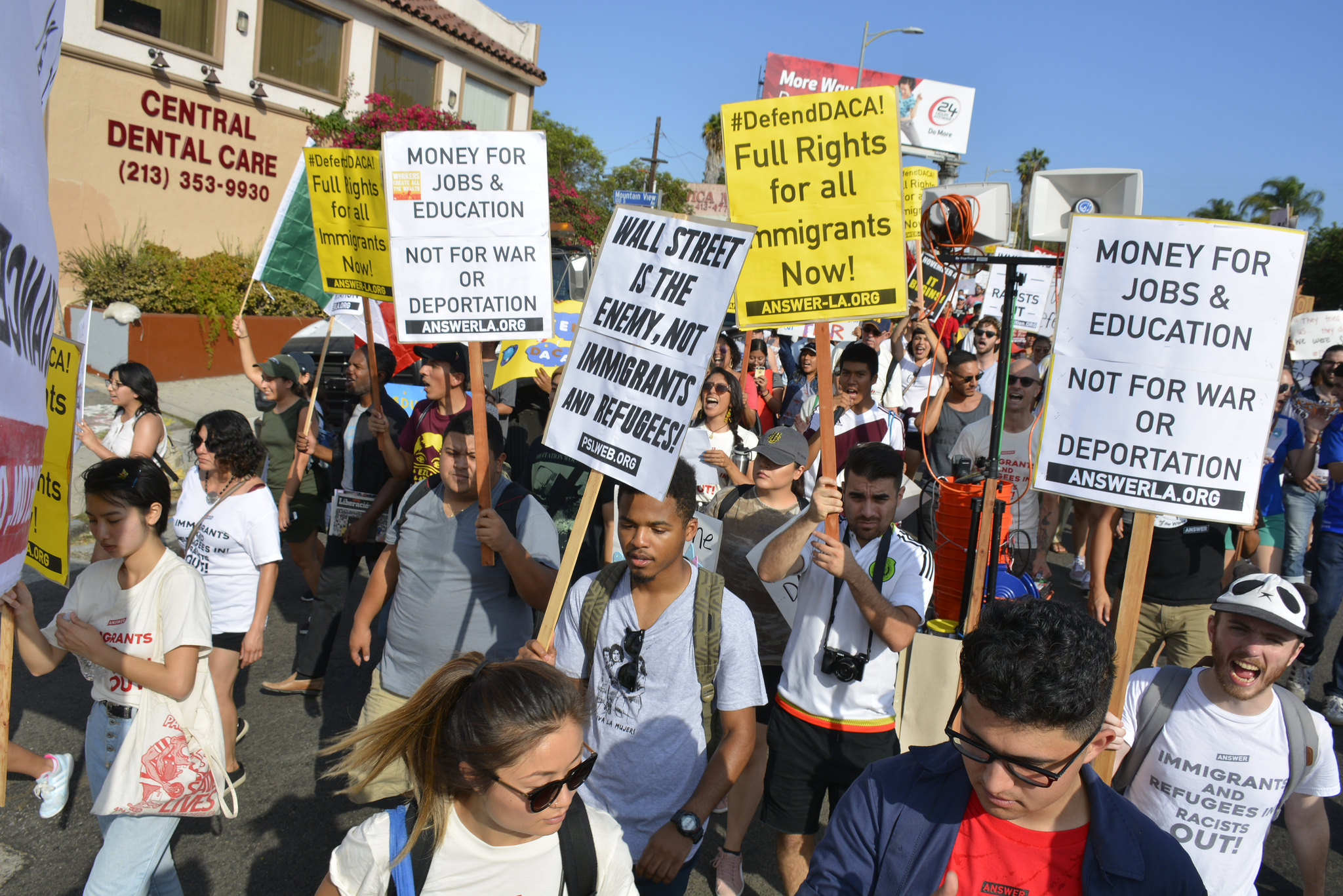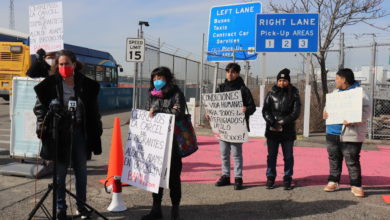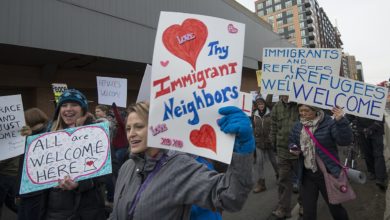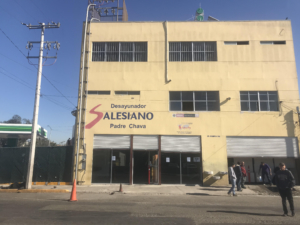
In Tijuana, Mexico, there is a dry concrete riverbed that once held the flowing waters of Tijuana’s main river. Today, it’s home for the people who have been deported and can’t find work or shelter in Tijuana. With very limited resources, this region of northern Mexico is now home to thousands of homeless people. Many working people from the United States are deported and end up homeless and living in an area along the Tijuana River called “El Bordo.” Mexico has 15 repatriation points, but one-third of deportees are usually sent through Baja California and end up in Tijuana.
People from Mexico and Latin America are optimistic about migrating to the United States with the desire to work and find a better life. They chase the “American Dream” which later is crushed by the same system that led them to migrate. The United States government has unleashed a wave of terror against the immigrant and Muslim community of the U.S. in the last year. With Donald Trump winning the election, the result has been widespread fear in immigrant communities. Some people were so scared that they didn’t go to work or allow their children to go to school for fear of being stopped. Latin American immigrant children from the Bronx to Boyle Heights complained of nightmares about being separated from their parents. This is the reality working people face living in the United States.
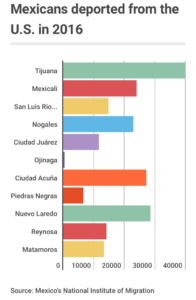 Some of the deportees in El Bordo lived a decent life in the United States before being deported. They worked, married, and had children. Some bought houses or, opened businesses. They were able to create a stable life without documents. But now, deportees residing in El Bordo have no paperwork to prove that they belong in Mexico to find a job.
Some of the deportees in El Bordo lived a decent life in the United States before being deported. They worked, married, and had children. Some bought houses or, opened businesses. They were able to create a stable life without documents. But now, deportees residing in El Bordo have no paperwork to prove that they belong in Mexico to find a job.
Liberation News visited Tijuana and spoke with people in El Bordo and the surrounding areas for an eyewitness account.
The first place visited was the “Desayunador Salesiano de Padre Chava” that is located along the riverbed. The Desayunador is a public church-based facility that provides free breakfast and water for those recently deported. There are about five of these facilities located in the surrounding area along the riverbed. This Desayunador receives around 800 to 1,000 recently deported people each morning. There is a bus that runs routinely every morning from the closest repatriation station to the feeding facility.
At this location we met Raul, who was recently deported from Reno, Nev., less than 24 hours prior to our interview. Raul, a 39-year-old construction worker grew up in Reno; he was 4-years-old when his parents decided to migrate to the United States. Therefore he doesn’t have any roots in Tijuana; he doesn’t even speak Spanish. Raul has two children ages 5 and 2. For fear of his wife possibly being deported as well, he avoids calling her so that their children don’t lose both parents. Raul’s story is not unique in any way. It is the reality of what working people go through every day trying to survive under this inhumane system of capitalism in the U.S.
Immigrant workers in the United States adapt to life in the shadows of law enforcement. They learn a new culture, language, work skill and provide for their families in their new home. They come to the U.S. with a dream of getting a good paying job and living in peace, only to find out that the same capitalist government that is destroying their home country can also destroy everything they have made and sacrificed for in the United States.
Democrats: no friends of immigrants
During the Bush administration, the Republican Party’s goal was to revamp immigration laws; a record number of working people were deported. The Democrats were no better. Deportations increase under the Obama administration, insisting that most people who were deported had criminal records. This was a lie! Two-thirds of the deportees had committed only minor infractions or no crime at all — their only crime was having a working life in the United States without legal documentation. (New York Times)
During the Obama administration, more people were deported than under any president in the history of the United States — approximately 2.5 million people. This policy has come down like a hammer on Tijuana. Its government being underfunded, like most of Mexico’s cities, is struggling to absorb the sudden surge of homeless deportees. In addition, Tijuana is also struggling to not only accommodate deportees from the U.S., but also a growing number of refugees from Haiti, Ghana and the Caribbean.
Now, in 2017, President Trump has vowed to deport 2 million to 3 million immigrant workers and signed executive actions this year that set the stage for increased deportations that has Tijuana struggling to find resources.
Stopping the war on immigrant communities in the U.S.
These actions alone are giving the immigrant community no other option but to organize themselves in the streets. As we saw in September of this year, thousands of immigrants and their supporters poured into the streets of Los Angeles to denounce Trump’s repeal of the Deferred Action for Childhood Arrivals program (DACA).
Organized labor in the U.S. is also playing an increasing role in building unity and fighting for justice for all workers. The working class grows larger and more multinational every day. Immigrant workers bring with them valuable lessons of class struggle, both in the U.S. and from their native countries. These lessons will continue to enrich the labor movement, bringing greater militancy, solidarity and ultimately class consciousness in the struggles ahead. The exploited of Latin America, displaced by centuries of colonialism and neocolonialism, will be one of the key revolutionary factors in the future of the United States — the global center of imperialism.


